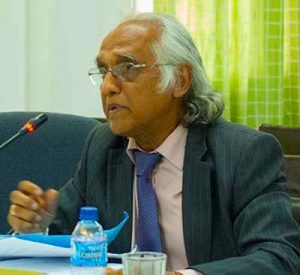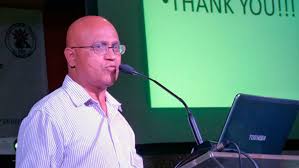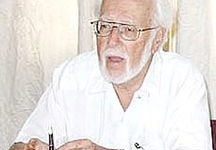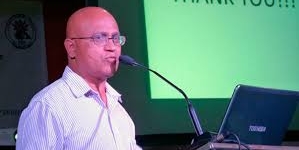Place national interest over partisan interest, Granger; concede
BY: CHRISTOPHER RAM
Fifteen weeks following the March 2, 2020 General and Regional Elections, it seems that the process is coming to a close. This is despite the release of two conflicting reports submitted to the Guyana Elections Commission within the space of two days: the first by Chief Election Officer Keith Lowenfield, who has a statutory function under the Representation of the People Act; and the other by the CARICOM Scrutinising Team.
Guyana owes a debt of gratitude to the three individuals who slogged away for thirty-three days, without interruption or any sign of flagging, to help restore trust in our electoral system. President Granger praised then as “the most legitimate interlocutors on the Guyana situation”, and the members of the team as competent to produce work of an international standard. Granger publicly expressed the wish that he would like them to succeed.
It was clear that Keith Lowenfield went way outside of his remit as set out in the Recount Order and made findings and conclusions that have no legal basis, even though his report was endorsed by no less a luminary than Attorney General Basil Williams. I want to believe that Lowenfield made an innocent mistake in failing to understand what a summary is or the scope of his report. Mr. Lowenfield is not an attorney, and is probably not aware of the provisions of Article 163, which make the High Court the exclusive arbiter on matters relating to elections.
More troublingly, however, is that Lowenfield felt it was in his power to disenfranchise close to 275,000 voters, or 60% of those who voted. He does not understand the principle of presumption of legality and the onus and burden of proof. Had he been better advised, those legally elementary mistakes could have been avoided, as well as the ridicule being thrown at him.
The Caribbean Scrutinising Team has now made Lowenfield’s report into a series of amateurish mistakes, and it is now up to GECOM how to reconcile the two. Both reports are now being “deliberated on” by GECOM, whose chairperson is, coincidentally, a retired judge. Despite the origin of their appointments, she and the other six commissioners are under oath to honour, uphold and preserve the Constitution. She, more than they, would recognise that they do have a fiduciary obligation to the electorate, and to conduct themselves without fear or favour, affection or ill-will.
As it is, the Commission is comprised of rank political appointments under an independent chairperson. It would be truly unfortunate and unhelpful to our democracy if the chairperson is forced to use a casting vote, and it would go some way in restoring trust in the factions of the electorate if the chairperson can persuade her fellow commissioners to avoid a vote and rather come to an agreement by consensus. As a longstanding Judge, she no doubt has years of experience in the adversarial court system, and persuading rival sides to compromise.
But there is one person who carries an even greater role and influence, and that the APNU+AFC Presidential candidate David Granger.
The elections were hard fought, but it is time to bring the fight to an end. It is in the nature of competitive politics that one side seeks to persuade the electorate that it is more deserving of their vote than the other side. While defeat is always painful, it must never be dishonourable, and Granger will go a long way in restoring his credibility and the dignity of the high office he holds if he would call the PPP/C’s presidential candidate to congratulate him, wish him well, but signify to him that the Opposition is a legitimate part of the head table called the National Assembly.
Granger must rest assured that all the young people whose voices came to the fore were fighting not for the PPP/C, but for democracy. One thing that now seems certain is: screw up, and the electorate will not hesitate to remove you.
The impending end of the electoral cycle solves only one of our country’s problems. We still have to deal with the coronavirus, and now we are told that our Treasury is empty. The World Court will soon be engaged in our long-festering issue with Venezuela. Our differences should end at our borders, and both President-elect Irfaan Ali and outgoing President Granger, as nationalists, must both work towards the preservation of our sovereignty and territorial wholeness.
There is a lot resting on the shoulders of the GECOM commissioners, and they need to put political differences aside and put Guyana first. But with Granger rests the opportunity and the duty to place the national interest over partisan interest.






















